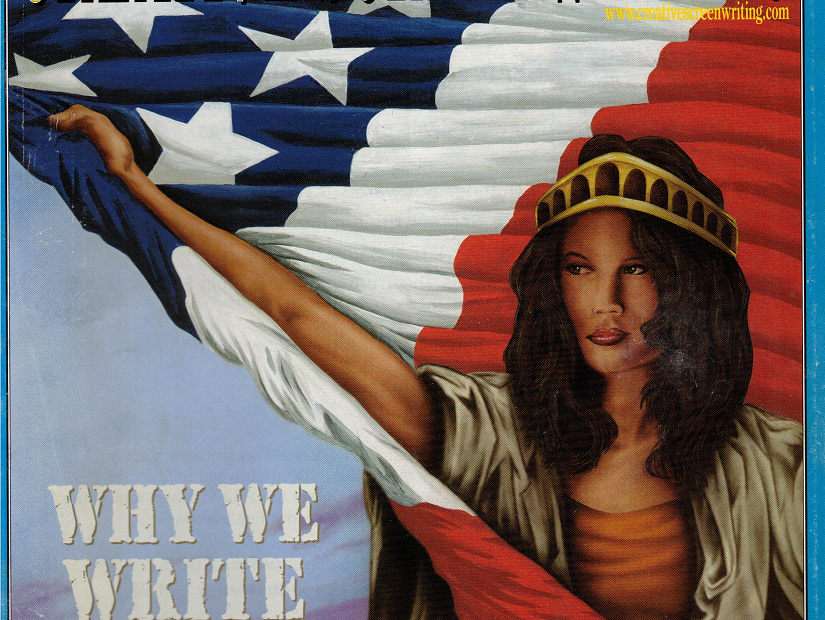This article originally appeared in the February, 2001, Number 17 issue of *spark.
In times of hyper-capitalism, where everything is naturally seen as for sale, the idea that anybody does anything without expectation of financial compensation is considered absurd. Where examples exist, they are first explained away, then, if possible, brought into the market economy. To the extent that exchange happens outside the money economy, it detracts from
economic efficiency (and the carefully calculated numbers of economists). The Internet is an example of this problem. Many writers, graphic artists, designers, programmers and others create things that are shared without money changing hands. What motivates them to do this?
Ego, say traditional economists: they can show off their intellectual abilities, or, perhaps, that they are good people who know how to share. Not so, say others: the Internet is an example of a gift economy. Howard Rheingold, in Virtual Communities, was one of the first writers to make the connection between digital communications and gift exchange; since then, it has been repeated in the popular press so often, the connection
is taken for granted. We freely circulate information on the Internet in the expectation that we will benefit from the information freely circulated by others.
There’s only one problem: gift economies don’t work this way. In traditional anthropological studies, gifts are given on ceremonial occasions to members of one’s tribe, or the tribe of somebody else to which one wants to affiliate. At weddings, to take one example, there can be a complex arrangement of gift giving between various members of the two families involved. Although somewhat altered, gift giving at occasions such as weddings and birthdays remains a common practice.
Notice that the gifts are exchanged between people who know each other; indeed, the purpose of gift giving is to cement relationships between people. This may have been true of the very early Internet, which was small enough that researchers could know each other and direct their work to specific people. However, it is not sufficient to explain the behaviour of people who, to use one current example, put pages on the World Wide Web, since they may never know (and, therefore, have no relationship with) people who see their work.
Worse, in traditional theory, gifts are alienable; this means that when you give a gift, you give up ownership of it. Ownership of the gift is transferred to the person to whom you give it. However, by its very nature, ownership of information is inalienable. When you send a copy of a document to somebody, you can keep a copy for yourself. Alienability is an important aspect of gift culture; we wouldn’t think much of somebody who
had given us clothing, for example, if they kept asking if they could borrow it! If the Internet is not a gift culture, we have to return to the question: why do so many people work so hard on something for which they receive no financial compensation?
One more recent theory is called “generalized exchange of goods.” In this theory, digital communication networks contain a store of knowledge that is common to all who have access to them. People contribute to the common store without expectation of compensation because by drawing on the common resource, they get more out of it than they put in.
One of the advantages of generalized exchange is that, by emphasizing the relationship between individuals and resources, it avoids gift theory’s emphasis on the relationship between individuals. It also avoids the question of alienability, since the common resource is considered to be shared by all members of the community that has access to it.
Generalized exchange has historical precedent. “Common lands” were widespread throughout Europe in the Middle Ages; farmers took turns grazing their livestock in pastures that were considered the property of all. Each in his turn had to maintain the quality of the land for the good of all. Common lands, whatever their virtues, aren’t economically efficient in the modern sense, and an entrepreneurial class developed which believed it could put them to better use. In Britain, successive
governments passed laws that enclosed more and more of the common lands, the best of which, once individually owned, were quickly bought up by the entrepreneurs. The collective good was sold out to business.
A similar process happened with the Internet. The American government, under pressure from corporations, decided to privatize the system’s backbone, opening the door to the commercialization of the Internet. The result: in 1995, only 3% of the traffic on the Internet was commercial; by 1999, this had skyrocketed to over 60%. To be sure, there are still individual exchanges of information (email, for instance, or personal Web pages), but they are being marginalized, pushed to the edges of a commercial communications system.
Although it fits the facts better, general exchange of goods hasn’t been promoted in the popular media. Why? Hyper-capitalism is also about hyper-individuality, where people are valued primarily as consumers. General exchange is a collective activity that undermines this ethos. If people are freely exchanging information as artists and/or citizens, they are not consuming the products of information or entertainment producing corporations. The market has to take over all forms of exchange if it is to grow.
Just ask the farmers of the common lands.
Can’t get enough of *spark? For more intellectual stimulation, go to the source: *spark online.


